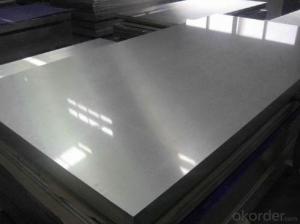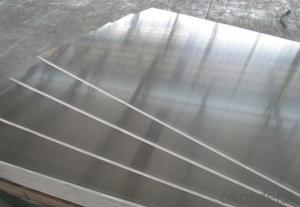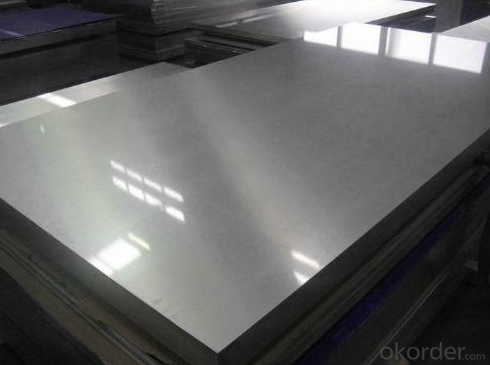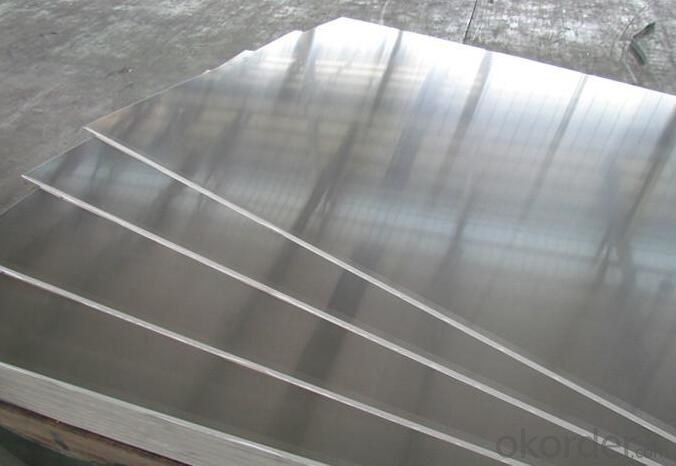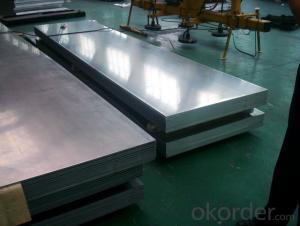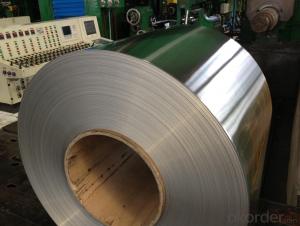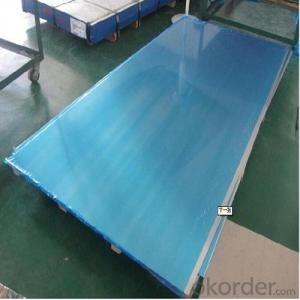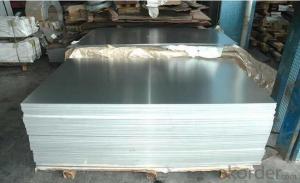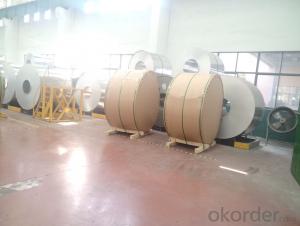Black Anodized aluminium plates 5083 2-20mm
- Loading Port:
- China main port
- Payment Terms:
- TT or LC
- Min Order Qty:
- 5 m.t.
- Supply Capability:
- 360 m.t./month
OKorder Service Pledge
OKorder Financial Service
You Might Also Like
Specification
Mill Finish Black Anodized Aluminum Sheet
1. Commodity: 5083 Aluminium Plain Sheet for Marine Use
2. Alloy No.: 5083
3. Size: Thickness: 2-20mm (Tolorance±0.02mm) Width:200-1600mm(Tolorance±1mm) Length:500-1500mm(Tolorance±1mm)
4.Application: air plane, refrigerators ,audio equipment, ships building ect
5.Month Capacity: 5000MT/Month
6. Specification:
1. | Item | Aluminum plate/ Aluminum sheet,aluminium plate price, aluminium chequer plate,aluminium sheet,aluminium sheet price | |
2. | Standard | ATSTM,AISI,JIS,EN,GB | |
3. | Alloy | 5083 | |
4. | Specifications | Thickness | 0.5mm~200mm |
Width | 100mm~3000mm | ||
Length | 2m,3m,5.8m,6m,or as required | ||
6. | Surface | Bright, polished, hair line, brush, sand blast, checkered, embossed, etching, etc. | |
7. | Price Term | Ex-work, FOB, CIF , CFR, etc. | |
8. | Payment Term | T/T, L/C, Western Union, etc. | |
9. | Delivery Time | According to order’s quantity. | |
10. | Package | Export standard package: bundled wooden box, suit for all kinds of transport, or be required. | |
11. | MOQ | 10000kg | |
12. | Export to | Asia, Europe, Africa and South America | |
13. | Application | air plane, ship building, refrigators and other industry products | |
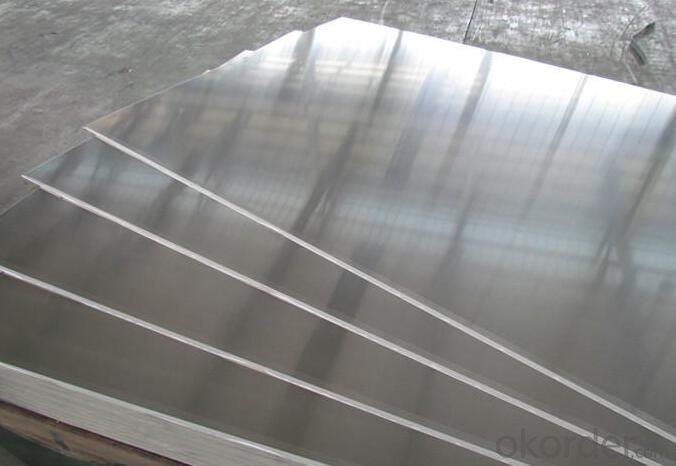
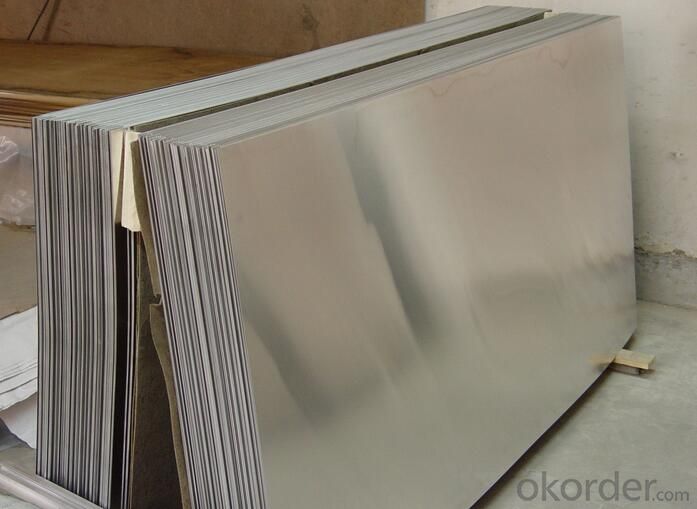
Packaging detail: First, plastic cloth; Second, Pearl Wool ; Third, wooden cases with dry agent ,without fumigation, wooden pallets
Delivery detail: Within 25days
FAQ:
1. How can I get some samples?
We are honored to offer you samples. New clients are expected to pay for the courier cost. The samples are free for you.
2 Do you have any certificates?
Our products passed inspection of SGS, FDA, and CE Quality is priority! Every worker keeps the QC from the very beginning to the very end, Quality control department especially responsible for quality checking in each process.
3 Can your factory print or emboss my logo on the goods?
Yes, we can print or emboss the logo on the goods or their packing box.
4 What information should I let you know if I want to get a quotation?
1) The specification of products (length x width x thickness);
2) The temper and alloy.
3) The final product you will use to be made
4 It will be better if you can show us the pictures or design sketch. Samples will be best for clarifying. If not, we will recommend relevant products with details for reference.We usually produce goods based on customers
Samples or based on customers’ picture, logo, sizes etc.
- Q: Can 101 aluminum sheets be used in HVAC systems?
- Certainly, HVAC systems can utilize 101 aluminum sheets. Due to its exceptional thermal conductivity, resistance to corrosion, and lightweight attributes, aluminum is frequently employed in HVAC systems. The 101 aluminum alloy, a widely utilized grade, offers commendable strength and ductility, rendering it suitable for HVAC applications. It is commonly employed in the manufacturing of ducts, air handlers, heat exchangers, and various other components within HVAC systems. Moreover, aluminum sheets are highly malleable, allowing them to be easily molded and shaped in accordance with the specific demands of the HVAC system.
- Q: I have heard that drinking from aluminum cans is bad for our health. However, I have learned that today's 'aluminum' cans are actually more like a plastic can due to all the coatings, etc. Do we really have any risks associated with regular cans?
- This Site Might Help You. RE: Are today's aluminum cans bad for our health? I have heard that drinking from aluminum cans is bad for our health. However, I have learned that today's 'aluminum' cans are actually more like a plastic can due to all the coatings, etc. Do we really have any risks associated with regular cans?
- Q: Are the aluminum sheets suitable for manufacturing food processing equipment?
- Aluminum sheets, indeed, prove to be fitting for the production of food processing equipment. This metal, lightweight and enduring, possesses resistance against corrosion, rendering it exceptionally suitable for deployment within the food industry. Moreover, aluminum is free from toxicity, odorlessness, and devoid of any detrimental impact on the flavor or excellence of the processed food. Furthermore, aluminum can be effortlessly cleansed and maintained, thus guaranteeing adherence to hygiene guidelines. Additionally, owing to its capacity to proficiently conduct heat, aluminum serves as an apt choice for cooking and baking applications. All in all, the myriad advantageous attributes of aluminum sheets establish them as a widely favored option for the manufacture of food processing equipment.
- Q: What are the specific rules or codes that govern the use of aluminum sheets in residential construction?
- <p>Yes, there are special regulations related to using aluminum sheets in residential buildings. These regulations can vary by country, state, or municipality, but generally, they cover aspects such as material standards, fire resistance, structural integrity, and energy efficiency. For example, aluminum sheets must meet specific thickness and strength requirements to ensure structural safety. They must also comply with fire codes, which may require certain fire-resistant coatings or treatments. Additionally, energy codes may dictate the insulation value of aluminum sheets used in walls or roofs to improve thermal performance. It's crucial to consult local building codes and regulations to ensure compliance when using aluminum sheets in residential construction.</p>
- Q: Are aluminum sheets suitable for food processing conveyor systems?
- Yes, aluminum sheets are suitable for food processing conveyor systems. Aluminum is a lightweight and durable material that is resistant to corrosion and can withstand extreme temperatures. It is also non-toxic and does not react with food, making it a safe choice for conveying food products. Additionally, aluminum sheets are easy to clean and maintain, making them an ideal option for food processing conveyor systems.
- Q: a 1 kg block of aluminum and a 1 kg block of lead are immersed in water, Both sink, but which experienced the greater buoyant force? Why?
- Buoyant force = weight of water displaced The thing that affects the weight displaced is the volume of the metal blocks. Both Aluminum and Lead have the same mass (1kg) but Lead is more dense than Aluminum (11.34g/cm^3 vs 2.70g/cm^3). As such, the 1kg of Aluminum has a greater volume than Lead and hence experienced the greater buoyant force.
- Q: Can aluminum sheets be used for automotive applications?
- Yes, aluminum sheets can be used for automotive applications. Aluminum is lightweight, strong, and has excellent corrosion resistance, making it an ideal material for various automotive components such as body panels, hoods, doors, and engine parts.
- Q: What is the thickness range available for 101 aluminum sheets?
- The thickness range available for 101 aluminum sheets can vary depending on the specific manufacturer and supplier. However, in general, 101 aluminum sheets are commonly available in thicknesses ranging from 0.016 inches (0.41 mm) to 0.25 inches (6.35 mm). It is important to note that this range is not exhaustive and there may be variations or custom thickness options available based on specific requirements or requests.
- Q: What are the standard sizes and availability of aluminum sheets in the market?
- The standard sizes and availability of aluminum sheets in the market can vary depending on the location and specific requirements. However, there are some commonly available sizes that can generally be found in most markets. In terms of thickness, aluminum sheets are commonly available in 0.02 to 0.2 inches (0.5 to 5 millimeters) thickness range. Thinner sheets (0.02 to 0.06 inches) are often used for lightweight applications such as signage or crafts, while thicker sheets (0.1 to 0.2 inches) are typically used for more heavy-duty applications like construction or industrial purposes. Regarding width and length, standard aluminum sheet sizes are often offered in 4 feet by 8 feet (48 inches by 96 inches) or 4 feet by 12 feet (48 inches by 144 inches). These dimensions are widely available and suitable for various applications. However, it's important to note that custom sizes can also be ordered or cut from larger sheets to meet specific project requirements. Availability of aluminum sheets can be found in various locations, including local hardware stores, metal suppliers, and online marketplaces. It is always recommended to check with local suppliers or conduct online research to determine the specific sizes and availability in your area. Additionally, different grades or alloys of aluminum may have varying availability, so it's essential to consider the specific requirements of your project when sourcing aluminum sheets.
- Q: What are the distinctions between standard and custom-made aluminum sheets?
- <p>Standard aluminum sheets are mass-produced with fixed dimensions and specifications, making them readily available and cost-effective. They are suitable for common applications where specific dimensions are not a priority. Custom-made aluminum sheets, on the other hand, are tailored to meet specific requirements regarding size, thickness, and other properties. They offer flexibility for unique applications but may be more expensive and have longer lead times due to the specialized manufacturing process.</p>
Send your message to us
Black Anodized aluminium plates 5083 2-20mm
- Loading Port:
- China main port
- Payment Terms:
- TT or LC
- Min Order Qty:
- 5 m.t.
- Supply Capability:
- 360 m.t./month
OKorder Service Pledge
OKorder Financial Service
Similar products
Hot products
Hot Searches
Related keywords
